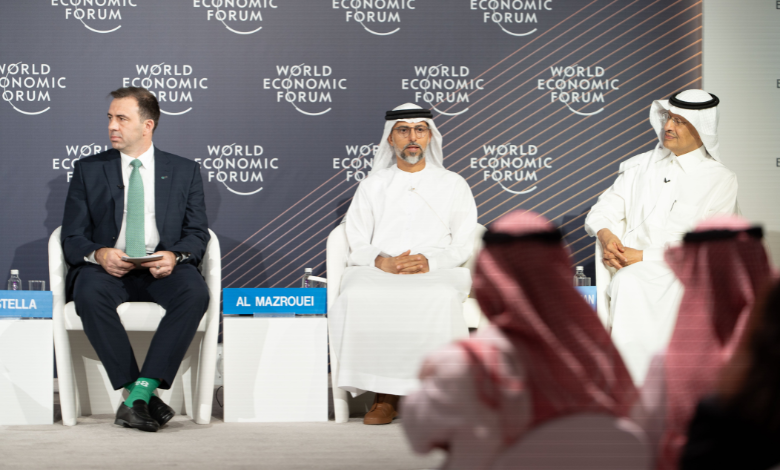Understanding UAE’s commitment to balancing economic development and environmental protection

Suhail bin Mohammed Al Mazrouei, Minister of Energy and Infrastructure of the UAE, recently attended the “Green Molecules and Hydrogen” session as part of the World Economic Forum, hosted by the Saudi capital city of Riyadh.
During the event, he highlighted that the UAE’s approach to climate action is underpinned by balancing economic development and environmental protection through leveraging low-carbon solutions, reported the official media agency.
The Gulf state revealed its National Hydrogen Strategy 2050 last year to strengthen low-carbon industries, advance climate neutrality and position the country as a leading producer of hydrogen by 2031, Al Mazrouei noted in his statement.
UAE’s focus on climate change and sustainability
During the event held under the theme “Global Collaboration, Growth, and Energy for Development”, he said that the UAE plans to produce 1.4 million tons of low-emission hydrogen every year by 2031 and a staggering 15 million tons annually by the middle of the century.
Moreover, the Emirati minister set out key enablers in the green molecules business, including global collaboration, policy and regulation, financing and investment, R&D and advanced technology, and sustainable commercial and economic models.
The UAE is prominent across the globe for its deepening focus on climate change and sustainability initiatives. In February, President Sheikh Mohamed bin Zayed extended the country’s Year of Sustainability for 2024.
The decision underlined the Gulf state’s efforts to protect and preserve the environment for future generations. His Highness announced the themed Year of Sustainability on January 20 last year. It proved to be a pivotal 12 months in terms of climate action.
Bottlenecks obstructing rapid clean energy deployment
Al Mazrouei also participated in a session on the “Roadmap to Tripling Renewables”. He outlined the major bottlenecks obstructing rapid clean energy deployment in emerging markets to be regulatory barriers, innovative financing, and digitalisation and innovative solutions.
Highlighting the Emirates’ journey so far, he said the country successfully doubled its renewables capacity between 2019 and 2022 and by 2023, it noted a remarkable 70% increase in installed renewables capacity, touching 6 GW.
UAE a prominent global investor in clean energy
During the event, the minister also underscored the increasing importance of global partnership and collaboration to facilitate technology transfer, investment and financing. He noted the need to accelerate the transition to sustainable energy systems in emerging markets.
The UAE is a prominent global investor in clean energy. It allocated Dh200 billion to investments in clean energy projects locally until the end of the decade, having invested Dh160 billion to date. The country has also invested Dh185 billion in such projects in over 40 countries.
In 2023, the UAE hosted the annual COP28 Summit at Expo City Dubai, convening participants from over 100 countries. It helped facilitate the operationalisation of the Loss and Damage Fund and reached the landmark UAE Consensus calling to transition away from fossil fuels.



